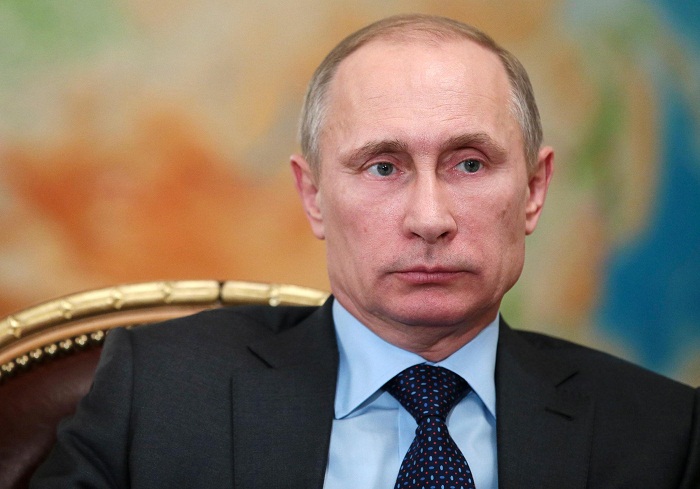Putin visits disputed Crimea after Ukraine warns of invasion

Putin’s arrival escalates the worst confrontation between Russia and its neighbor since a 2015 truce eased violence between pro-Russian rebels and Ukraine in that country’s easternmost regions. The situation boiled over last week when he accused Ukraine of “terror” tactics in Crimea and vowed “very serious” measures in response. Ukrainian President Petro Poroshenko, whose government blames Russia for the separatist war, put his military on high alert.
Russia’s ruble fell 0.6 percent against the dollar to 64.0375 at 2:11 p.m. on Friday in Moscow. Ukraine’s hryvnia was 0.3 percent weaker, and the yield on its dollar-denominated bond maturing in 2019 rose 15 basis points to 8.513 percent.
Poroshenko has rejected Putin’s claims last week that Ukrainian forces killed two Russian servicemen in Crimea in separate incidents earlier this month. On Thursday the Ukrainian leader said the chance of an escalation was “very significant” and “we don’t rule out a full-scale Russian invasion” of his country of more than 40 million people.
The standoff comes less than a week before Ukraine’s anniversary of its independence from the Soviet Union and a month before Russia holds parliamentary elections. Following several weeks of intensifying clashes between Ukrainian troops and separatists, the dispute also complicates Ukraine’s efforts to focus on domestic-based policies needed to restart a stalled $17.5 billion western-led economic bailout.
Minsk Agreement
Efforts to bring peace to eastern Ukraine have stalled, with Putin saying plans to resume talks over the cease-fire pact signed last year in Minsk, Belarus at next month’s Group of 20 summit in China would be pointless. The Russian leader, whose economy is still battling a recession, may be trying to gain the upper hand when discussions over Ukraine’s future resume.
“This escalation may be linked with the Kremlin’s desire to exit the current format of talks,” Serhiy Zgurets, head of the Defense Express military-research center in Kiev, said by phone. “It wants to return to direct negotiations with the U.S. to divide spheres of interest.”
Both the U.S. and EU imposed sanctions against Russia after it annexed Crimea and the conflict in Ukraine’s east erupted. German Chancellor Angela Merkel said that she saw no reason to lift the trade penalties because the conditions for doing so hadn’t been met, according to an interview with Redaktions Netzwerk Deutschland published Friday. Implementing the Minsk agreement “is and remains the yardstick for the future of sanctions,” she said.















































